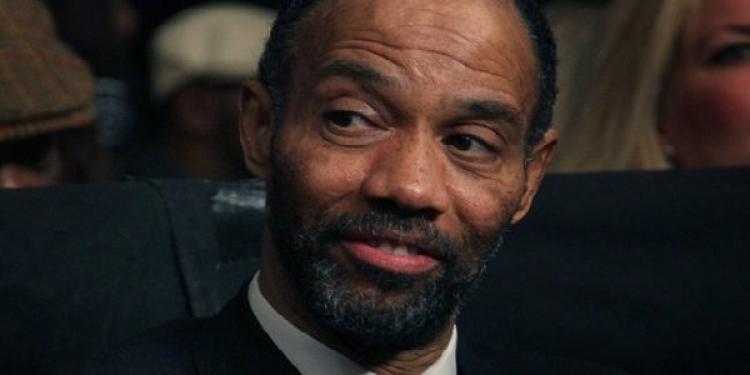Al Haymon: Possibly the Most Influential Man in Boxing (part1)
Posted: May 5, 2015
Updated: October 6, 2017

This elusive figure has spent more than $20 million for 20 shows in NBC.
The most influential figures in boxer are the ones most seen in the public eye. That is except one. His name is Al Haymon, who rarely appears and never interviews, was recently mentioned by Mayweather. “Al Haymon. If it wasn’t for Al Haymon…I wouldn’t be where I’m at today.” The fact that Haymon was the only person thanked by Mayweather who wasn’t present, was fodder for conspiracy websites everywhere.
• Al Haymon manages over 100 fighters including Mayweather and Amir Khan.
• Haymon signed singers like MC Hammer, Whitney Houston and Mary J. Blige.
• Haymon launched Haymond Boxing and Premier Boxing Champions.
Al Haymon manages over 100 fighters including Mayweather, Amir Khan, Adrien Broner, Adonis Stevenson and Pauli Malignaggi. Haymon started Haymon Boxing and Premier Sports Champions. The latter has brought boxing back to television by spending $20 million in airtime to run his shows on NBC and NBC Sports Network. Is there a reason for his exclusivity? Could the infamy of his legacy rival that of Don King?
Haymon’s road to prominence
Al Haymon was born in 1956 in Cleveland, Ohio. Little is known about his time growing up in Cleveland. It is known that he studied economics at Harvard University. His first exposure to boxing was through is older brother, a boxer who once fought Sugar Ray Leonard early in his professional career in 1978. Bobby Haymon had 30 fights in his career.
Despite his brother boxing influence, Haymon decided to pursue music promotion. He brilliantly decided to control all aspects of setting a live concert by creating business specifically for these tasks. His control of lighting, production and marketing, gave Haymon a “pre-made concert” that only required the performer. This proved attractive to many artists and Haymon was able to sign up many well known artists of the day.
The gamble, unrelated to US gambling laws, pay off by signing performers like MC Hammer, Whitney Houston and Mary J. Blige gave Haymon experience with creating large shows featuring multi-million dollar performers. Haymon also worked with Eddie Murphy by setting up his large comedy performances in the mid 1980’s. Haymon had an impressive record of putting on 500 shows which grossed $60 million in 1991.
Vernon Lynch, Eddie Murphy’s stepfather and Haymon’s business partner, once referred to Haymon as the “Steve Jobs of promotion.” Haymon’s next venture was into television. Within the course of a year, Haymon produced 10 shows. The experience in stage performance and television production proved to be critical building blocks to Haymon’s success and led him into boxing.
Haymon enters the boxing industry

Al Haymon signed Vernon Forrest and represented him. The former two-division champion would be the first of many fighters. By signing a contract in the form of a “Exclusive Advisory Agreement”, boxers give exclusive rights to Haymon’s company. Haymon guarantees the highest revenue for his boxers and counsels them in their development.
Although this agreement doesn’t technically define him as a manager or promoter, Haymon’s standard 10 to 15% of boxer’s purse is less than a manager’s share. If you equate the amount of money a “high profile” boxer can earn for a bout, that percentage is actually higher than that of the typical promoter or manager. Haymon was instrumental in Mayweather’s release from his Top Rank contract; well known in US gambling news.
Haymon recently started Haymon Boxing, which was billed as the “world’s premier boxing management company” is headquartered in Las Vegas. A little later, he also helped launch Premier Boxing Champions which is a promotional company responsible for spending $20 million on television airtime on NBC and NBC Sports Network. PBCs 20 shows were the first primetime boxing seen on non-prescription TV in 30 years.
PBC has also made a deal to broadcast 15 shows on ESPN. It seems as though Al Haymon is at the pinnacle of the boxing industry. Gone are the days in which figures like Don King would be at the forefront of boxing events talking to media to create a higher gate for their events. Now is the time where the most powerful are the ones unseen. The question remains, what does a further look into Haymon reveal?












